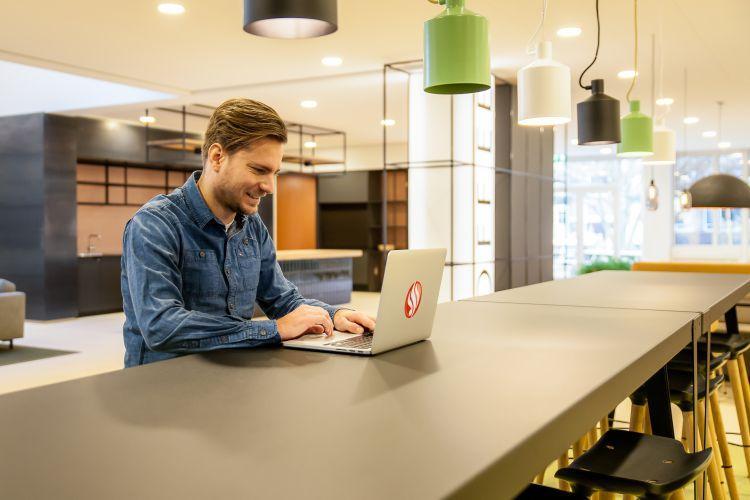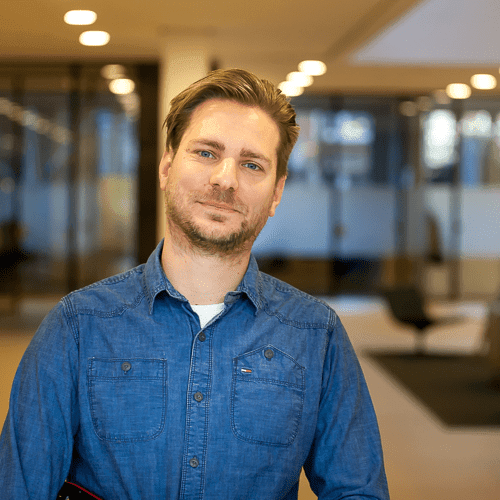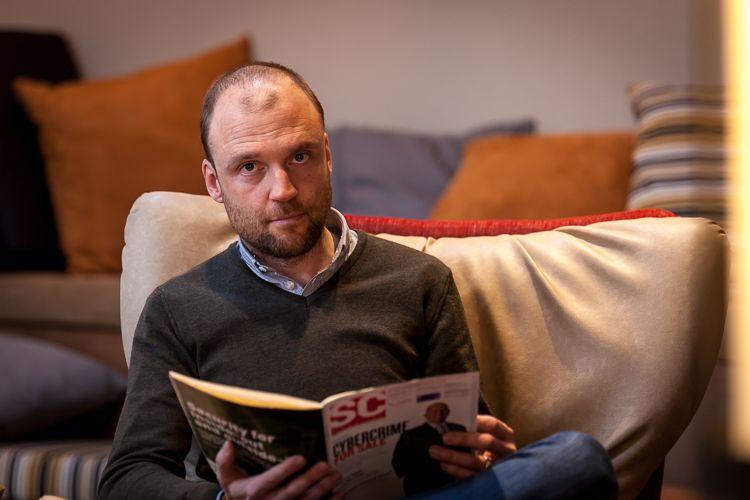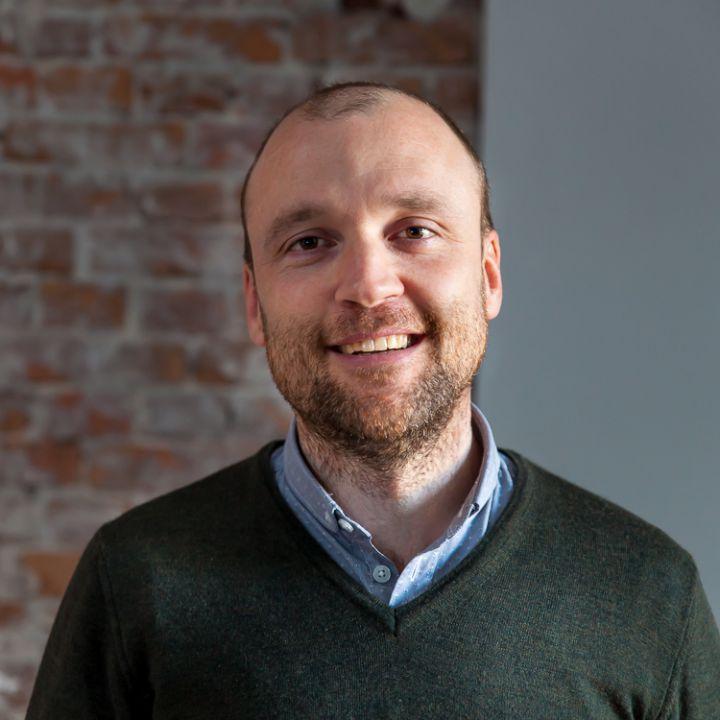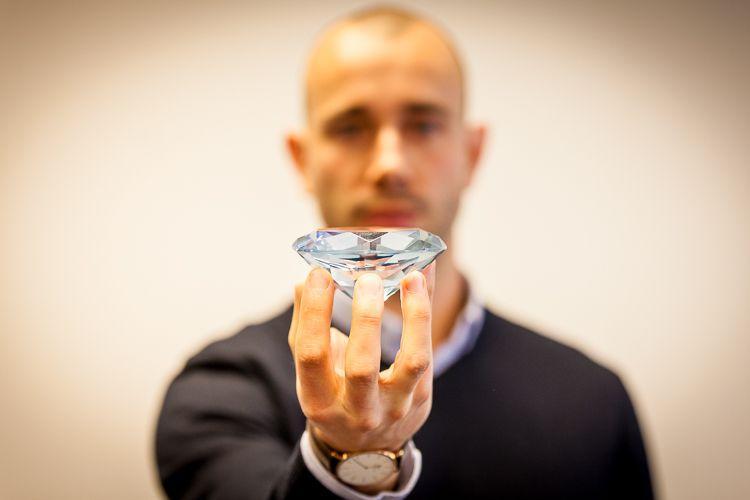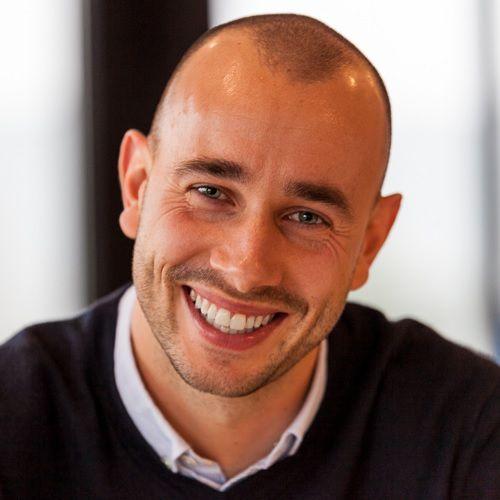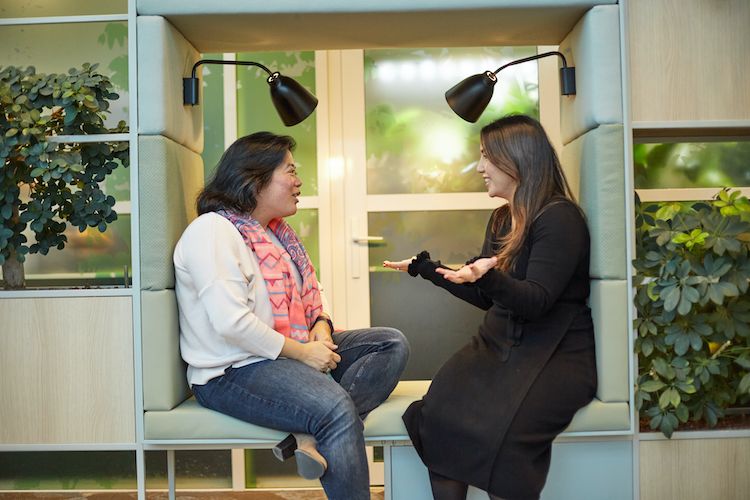
‘Having a team with ten people who studied computer science, a team that also includes a lawyer, philosopher, and someone with an MBA leads to new insights that in turn drive innovation and cool solutions.’
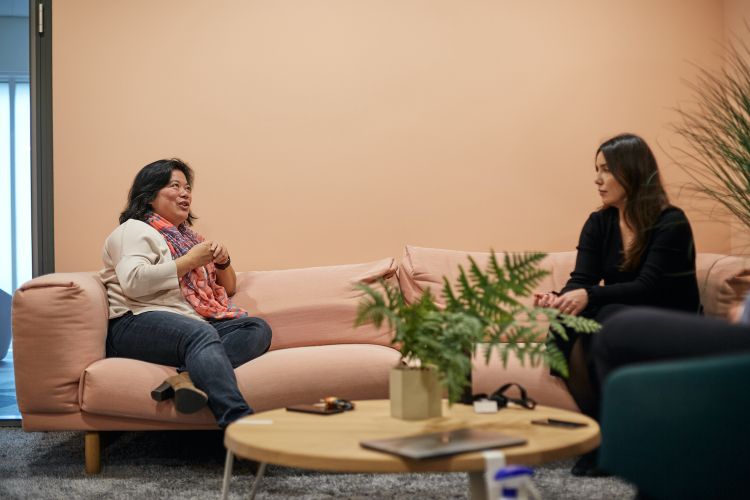
Crisis & Security Management / Business Administration
Let us first get to know you a bit. How did you end up in the field of security?
G: That only happened two years ago for me. I did a master in Crisis & Security Management, not at all a technical degree. During that master I took an elective course on cybersecurity, focused on the governance side of things. Before that moment I pictured cybersecurity as a pure ‘tech’ discipline. However, during this elective I learned about the other aspects and I got really enthusiastic about it. So, I followed up on this interest with a couple of internships, one of which was at the Global Forum of Cyber Expertise (located on the HSD Campus). I quickly realised that I really wanted to work in the security domain and just needed to find the right employer. I managed to set up some talks with people at Accenture and it immediately clicked.
Most people might think that technical skills are required to work in cybersecurity, but that is not the case. Within our Security team we have two tracks: ‘Client & Market’ and ‘Client Delivery and Operations’. The former is more aimed towards talent with a background like mine whereas the latter is more technical.
M: That is one of the fun parts, Gamze mentions the two tracks but in fact there are a lot of different subtracks within those two as well. Even the more technical track is not just about tech disciplines; it includes a lot of client-facing tasks and understanding of the broader security subject. That broad scope is one of the upsides of working for Accenture. I came in 16 years ago after my studies in Business Administration and after different positions I am now a bid manager, managing large deals. That is part of why I am still here; all the options that are provided and different things one can do. It is good to realise that what you do when you start working is not what you will always end up doing.
G: There is so much to learn. Within Security, we have different domains and different sectors and there is room to explore it all. What we do with the topics of diversity and inclusion here is like an extracurricular activity, the same is true for my marketing tasks.
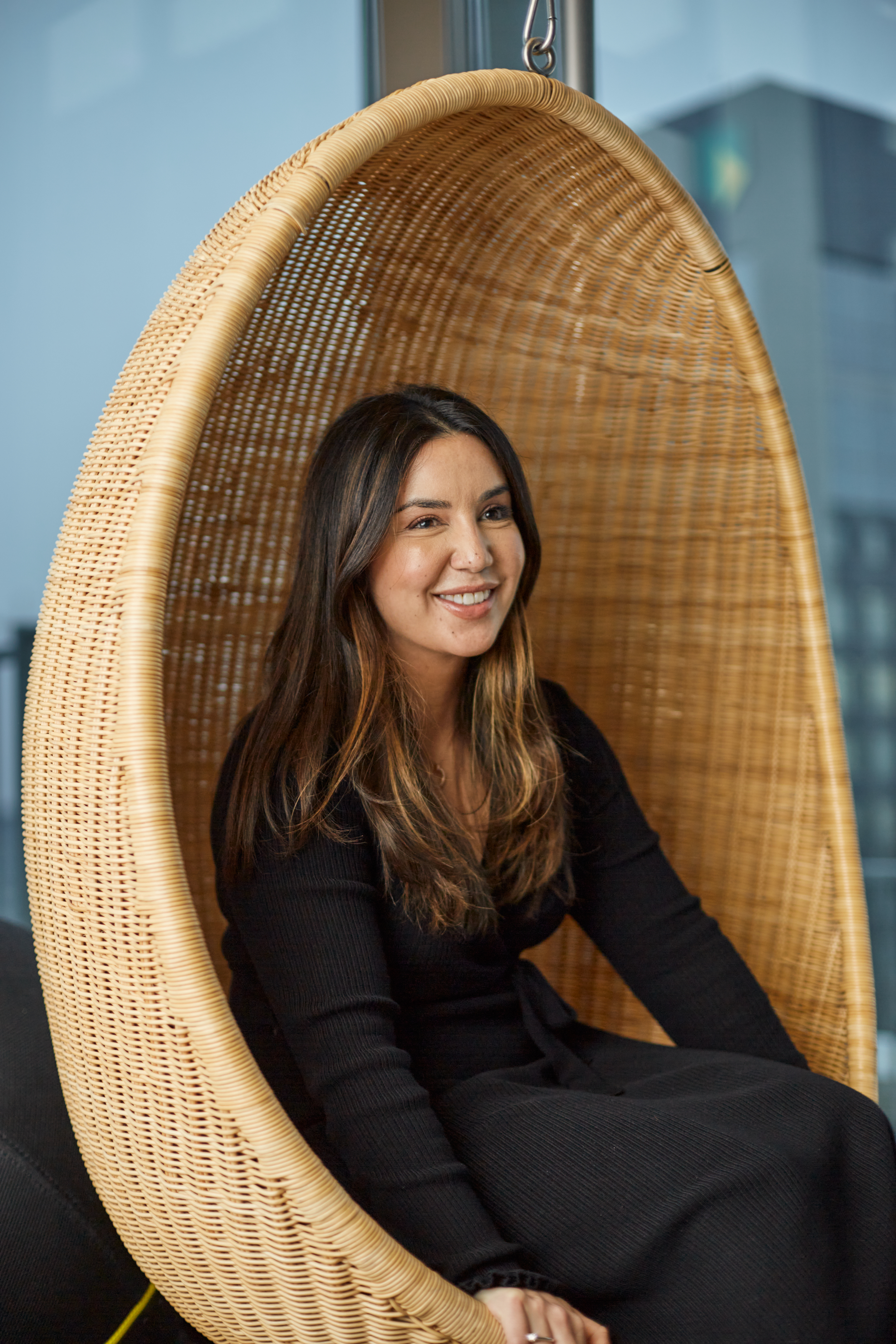 |
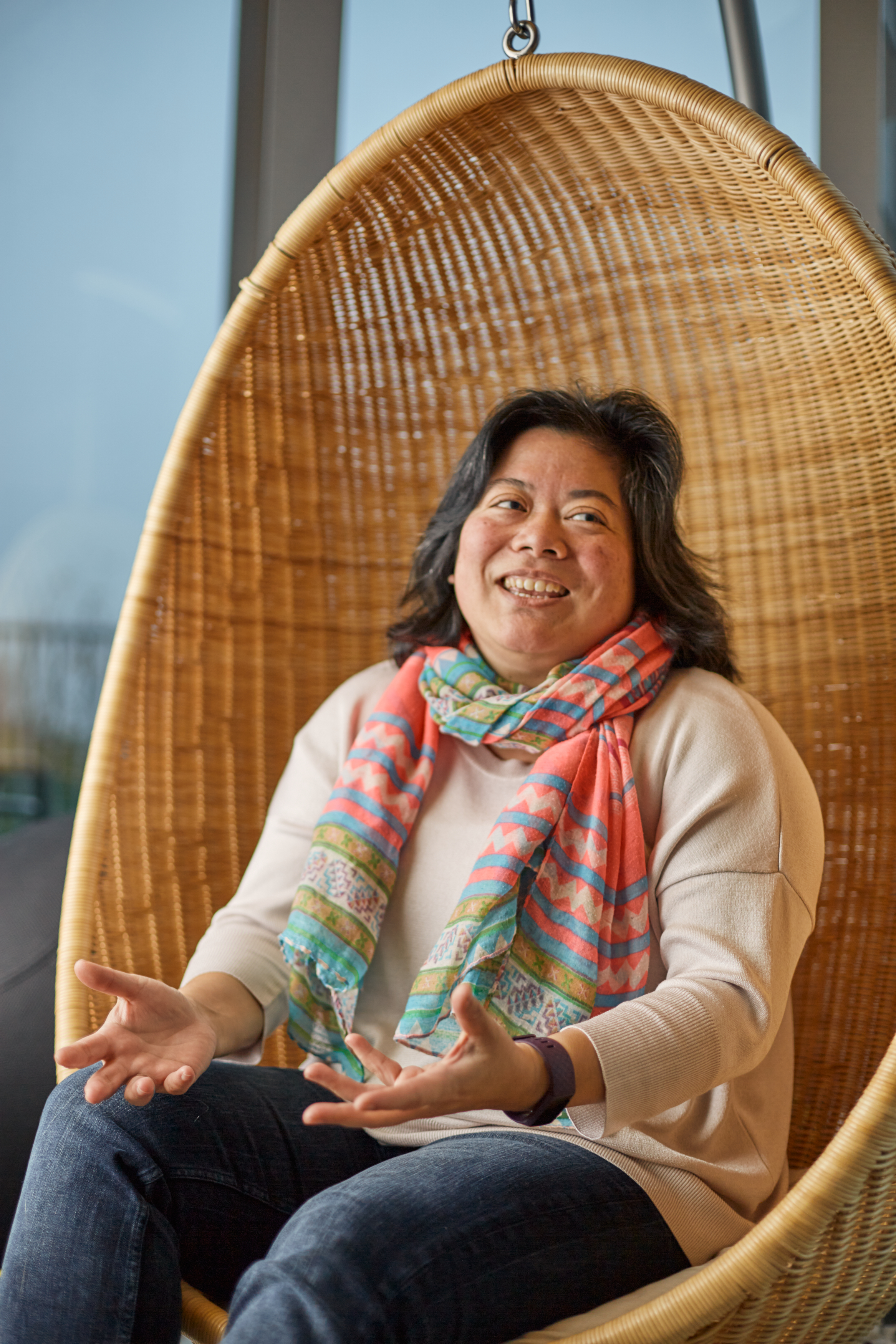 |
Something else that we noticed is that Accenture also posts openings for MBO level positions. In our analysis of the broader job market in cybersecurity we see that it seems underdeveloped in this regard. Openings often list HBO+ education as a demand even though it does not seem necessary for the kind of tasks listed. How does Accenture implement that diversity of educational background?
M: That is another advantage of our size; we are active on the different levels of cybersecurity. So we have the strategic and consultancy part, the technology part, and the operational part. The first is more about shaping a vision and the formulating and preparing of a project. Technology is the implementation of a project. Operational focuses on keeping an implemented project going and maintaining it.
That is why whenever people ask me what skills they need to have to work at Accenture, I reply that it really depends on the layer they are interested in. There are so many options that there is probably always a place that suits you.
Diversity and inclusion is an important factor in the work you do, what is your motivation for promoting further inclusion in the workplace, especially in your focus area of women in tech?
G: I think we, as women, are pretty underrepresented in the field of tech. This is something one also sees in particular job profiles or different layers within the company. Analysts and consultants are equally balanced gender-wise. However, the higher the position, the fewer women one sees. And I believe strongly in role models, they are essential in creating hope and trust for other people that they can reach the same level of success. An example is my Managing Director; she has two kids, is a real power woman and has a husband with a career of his own. She is comfirmation that I could have the same without sacrificing either career or family, if I want to. I think inclusion is a subject that deserves constant attention, and not just attention but also action. Without action, ‘diversity and inclusion’ can seem like a very vague concept. So through organising certain events and workshops and collaborating with other organisations, we want to continue to create that awareness.
M: The field of tech is traditionally a male dominated field, this is true for cybersecurity as well. One of the main reasons for founding ‘Women in Tech’ was that the women who worked in technology could not find each other. Which is a shame, because it can be such a benefit to be able to exchange experiences.
A couple of years ago, less than 30% of the people working in tech, the largest department within Accenture, were women. One of the main goals we decided to work on since then within inclusion & diversity was gender diversity. Of course, diversity applies to a lot more things, but we found that the gender gap was so big that that was an important part to focus on. Right now, you can already see in lower level positions that there is much more of a balance after only a few years. The higher level positions are where we still have a lot of work to do. One can see that women may otherwise leave the company, when they look ‘up’ and think that it is impossible to break into the highest echelons as a woman.
This work in inclusion and diversity is not a one-way street that just focuses on the position of women. Men also face particular struggles in the workplace. One of these struggles is wanting to become a father and having parental leave that is more equal to that of a woman. The focus for us is really on equality.
When you say that there is a greater balance in the lower level positions than before, what are the advantages of that change?
G: If you look at diversity in general, not just in gender but also in culture, educational background, and sexual orientation, you notice that it brings new insights and perspectives. Instead of having a team with ten people who studied computer science, a team that also includes a lawyer, philosopher, and someone with an MBA leads to new insights that in turn drive innovation and cool solutions. For example, we have a former fashion designer in our team who worked for a fashion house in Paris and is now part of our security team. Someone like that brings a bunch of creativity and a new way of thinking. That is also diversity.
M: Exactly that. We saw that the gender balance was something that really needed focus, but different backgrounds and ways of thinking are no less important in creating the environment that fosters innovation and helps people develop.
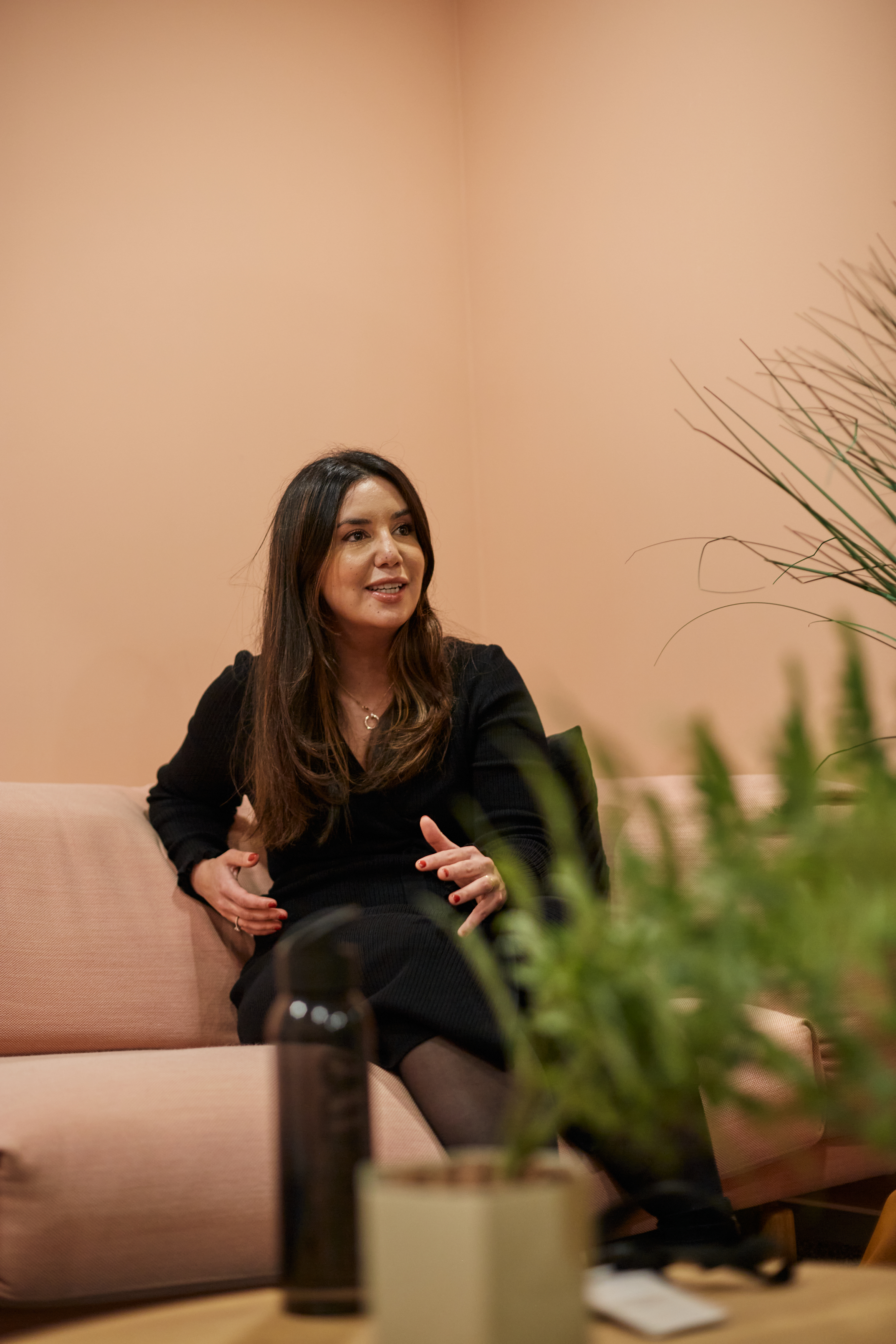 |
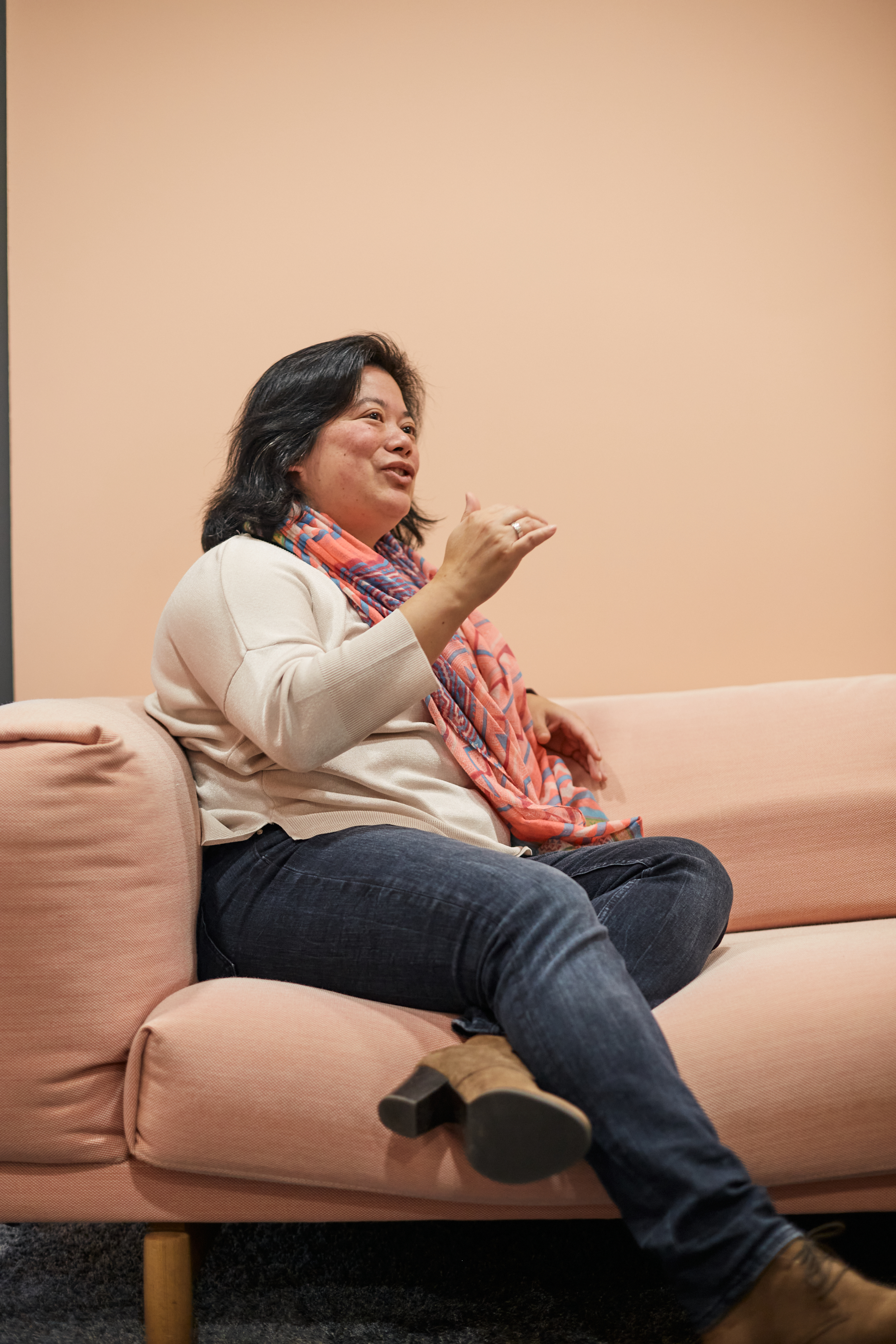 |
How do you feel that these diversity projects are embraced within the organisation? Not just from the executive level but also between colleagues?
M: That’s a really interesting question. At Accenture we set the global goal to have a completely equal representation throughout all layers of the organisation of 50/50 men and women by 2025. That goal elicits a lot of emotions and reactions. Some people claim that there is no problem, that women are favoured this way, and some women say that they do not want to feel as if they progress based on their sex. There is a lot of emotion in this topic. However, by setting this goal one also sees that there is commitment from the top management. They see that it is something we are behind on and want to change that. In the workplace there is a bit more reaction and perhaps friction.
Within the broader diversity and inclusion movement we are working along three axes; awareness, connectivity, and inspiration. Awareness is about making people realise that there are some things that happen on the workfloor that are not okay, for example as a result of unconscious bias. Besides the three axes, we have defined subgroups around themes like gender, inclusive workforce, cross-cultural, working parents and LGBTQ+. In those groups, people like Gamze and I work on advancing those causes so that combined we can realise more inclusion. Inclusion meaning here that everyone feels that they can be truly be themselves and feel at home at Accenture.
M: The challenge is in balancing the extent of the emotion. On the one hand you want to keep the workforce on board, but on the other you still want to do enough to actually enact change. Setting hard goals, like a 50/50 gender balance by 2025, is necessary to push forward with change and that approach fits the decisive culture of Accenture. Without it, concrete things likely would not happen.
A practical example of diversity is that of including non-conventional profiles for certain roles in the hiring process, like someone with an art or philosophy background. What we noticed is that the people tasked with recruitment had reservations about this approach at first, but in the end gave feedback that they were pleasantly surprised by the results. That is the same thing we hope to create with the implementation of the 50/50 goal, that it opens people’s eyes to the potential.
G: When I started working for clients I realised that I had no idea of how to approach a lot of tasks yet. Recognising the knowledge of your colleagues and that they are there to help you is invaluable. Everyone was in the same boat when they started. At first you might be very insecure and doubt whether you are in the right place, but if you allow yourself to be open to your colleagues you will learn so much more and recognize that they have had the same experiences.
M: That is also what inclusivity is actually about. Not the targets, but feeling safe enough to open up and show doubt and vulnerability. That attitude is what we try to foster and promote. If I give my presentations, the kneejerk response is ‘oh not this story again about groups and targets’, but when I follow up with examples of situations that response changes to ‘that is not okay!’.
G: What I said about role models also ties into this. If you show your vulnerabilities and allow others to see that, they will feel more comfortable to do the same and follow your example.
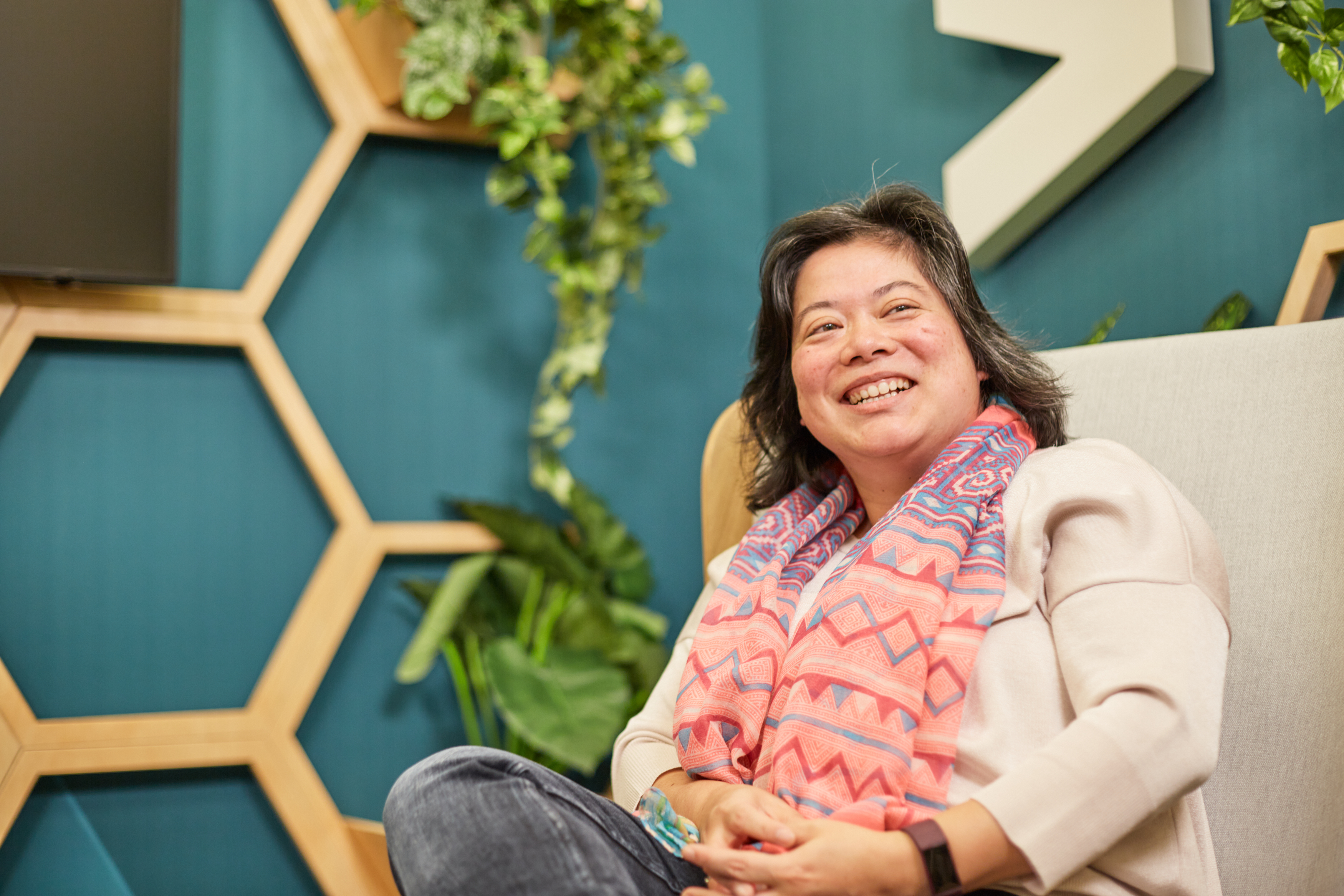 |
So I can imagine a hypothetical situation where you have a team meeting in a law firm. The room filled with all lawyers and one economist. If management announces that the firm will have a 50/50 workforce of lawyers and economists, a lot of the lawyers will look around and know that that means they must leave or that a number of economists have to be hired to offset the percentages. How does the organisation deal with the emotion and organisational challenges surrounding the topic?
M: Well, we hire all the extra people! No, I am joking, but only a little. There always is growth and movement at Accenture. People will naturally move out of jobs, advance in their careers and the organization hopefully keeps growing. Even just in changing positions; Accenture operates worldwide, so there is a lot of movement possible even within in the company. So we try to ask people when they move out of their position to consider possible successors for their role. And not just to ensure the same quality of work, but we also ask those people to consider different profiles from their own.
So we all know at Accenture that we will not work with the same group forever. And that is part of our model; if you are in the same place for ten years, people will expect you to move to another role, location or just an entirely different employer.
Do you have any final tips for up-and-coming talent?
G: Just try it. What you can expect is diversity; diversity of clients, of projects and of your team members. And in our team you contribute to help making the world a bit more secure.
M: Regardless of whether you apply to Accenture or somewhere else, just be yourself. Do not try to fit a model of what you think the template for a ‘good consultant’ is. Try to assess for yourself in which way you could add value to a role or company.



